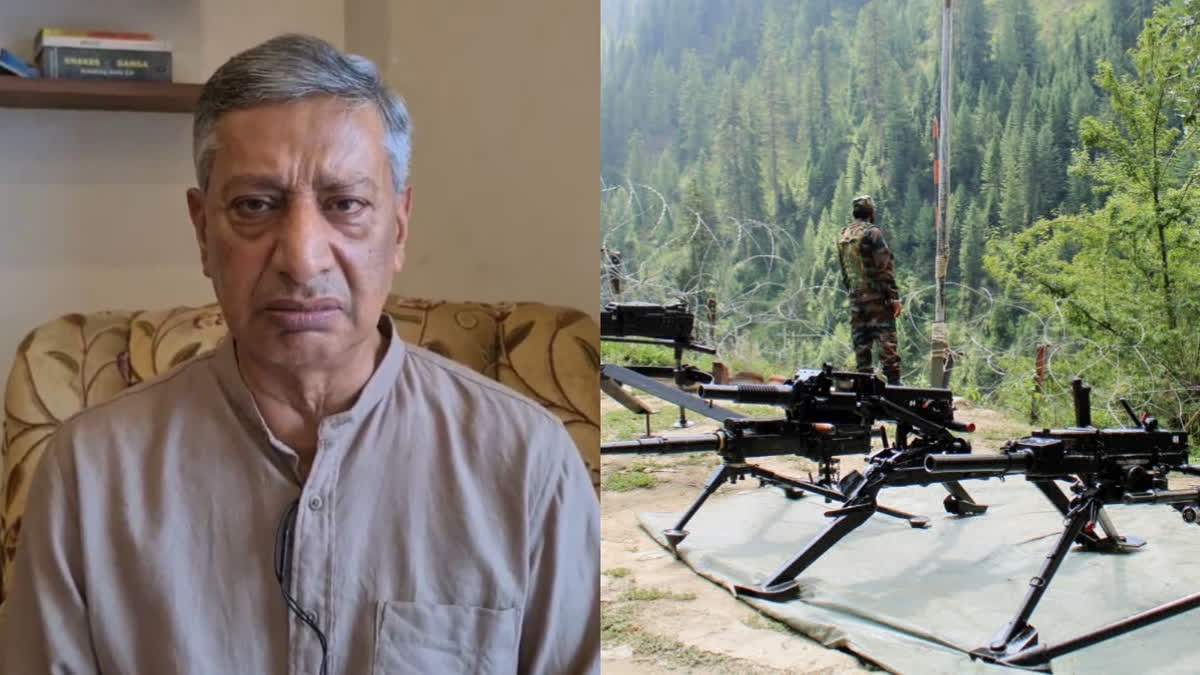Jammu and Kashmir: In a significant claim, former Director General of Police (DGP) of Jammu and Kashmir, S.P. Vaid, has stated that at least 600 members of Pakistan's elite Special Services Group (SSG) have infiltrated into India and are now operating in various parts of Jammu and Kashmir. This suggests that recent terrorist activities in the region may be the work of these highly trained Pakistani Army commandos rather than typical insurgents.
The Allegation and Its Implications
Vaid, who served as DGP and retired in 2018-2019, bases his assertion on substantial intelligence and specific sources. Such claims, particularly from a former high-ranking police official, are not made lightly, given the potential to incite panic. Despite the gravity of these allegations, there has been no official confirmation or acknowledgment from the Indian Army, Jammu and Kashmir Police, or the Indian government. Mainstream media coverage on this issue remains limited, likely to avoid public unrest.
Evidence and Media Reports
Certain media outlets, including The Telegraph and Express, have reported on the infiltration of SSG commandos into Jammu and Kashmir. Supporting these claims, a recent drone-captured image purportedly shows armed individuals, believed to be SSG commandos from Pakistan-occupied Kashmir (POK), planning their infiltration route into India. Vaid's intelligence indicates that these commandos have already established a presence in Jammu and Kashmir and are orchestrating a covert campaign against Indian Army units, including the 15 Corps and 16 Corps.
Context and Previous Warnings
This is not the first time such concerns have been raised. Amjad Ayub Mirza, a prominent journalist and human rights activist from POK now based in Britain, previously warned of Pakistan's plans against India. Mirza noted that Pakistan, facing a strong Indian government and internal challenges, has struggled to internationalize the Kashmir issue, leading to a cessation in terror funding. Consequently, Pakistan has allegedly deployed its commandos directly, considering them more effective than traditional terrorist operatives.
Official Responses and Security Measures
While the Jammu and Kashmir Police have not verified Vaid's specific claim about the SSG commandos, they acknowledge the infiltration of over a dozen terrorists operating in small groups responsible for recent attacks. Unofficially, law enforcement sources suggest that Vaid's intelligence should not be dismissed and warrants further investigation by Indian intelligence agencies.
Former DGP Vaid's credibility and the seriousness of his claims underscore the potential threat. Despite limited media coverage to prevent panic, similar past attempts by Pakistan to destabilize India lend weight to his allegations. The Indian Army and security forces are vigilant, continuously working to eliminate infiltrators and maintain stability in the region.
Leadership and Coordination
According to Vaid, the SSG operation is led by Adil Rahmani, who has overseen the infiltration of the 600 commandos. Once inside Indian territory, these commandos are believed to have reactivated sleeper cells and jihadi networks, aiming to destabilize the region and incite anti-government sentiment. Recent arrests of individuals in Jammu and Kashmir for supporting these infiltrators highlight the ongoing security challenges.
Lieutenant Colonel Shahid Saleem, another key figure mentioned by Vaid, reportedly leads these commandos, further validating the credibility of the intelligence. The absence of an official statement from the Indian government on this matter does not diminish the potential threat, as evidenced by the viral footage of infiltrators planning their entry into India.
Conclusion
The Indian Army and security agencies remain on high alert, prepared to address any threats posed by these infiltrators. As history has shown, India has consistently managed to counter such destabilization attempts effectively. The situation demands continued vigilance and proactive measures to ensure the security and stability of Jammu and Kashmir.

Post a Comment